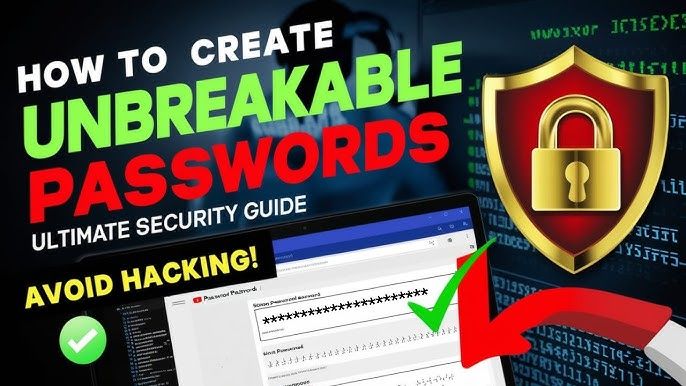
In today’s digital age, cyber security is more important than ever. With hacking and data breaches becoming increasingly common, it is essential to protect your online accounts with strong passwords. In this article, we will discuss some tips and best practices for creating stronger passwords and avoiding hacking.
Use a Combination of Characters
One of the most important things you can do to create a strong password is to use a combination of characters. This includes uppercase and lowercase letters, numbers, and special characters. By using a mix of different types of characters, you make it much harder for hackers to guess or crack your password.
For example, instead of using a simple password like “password123”, consider using a more complex one like “P@ssw0rd!23”. This password is much stronger and more secure than the first one.
Avoid Using Personal Information
Another important tip is to avoid using personal information in your passwords. This includes things like your name, birthday, or any other easily guessable information. Hackers can often easily find this information online, making it much easier for them to hack into your accounts.
Instead, try to come up with random, unrelated words or phrases that have no connection to your personal life. This will make your passwords much harder to guess or crack.
Use Different Passwords for Different Accounts
It can be tempting to use the same password for multiple accounts, but this is a big security risk. If a hacker were to gain access to one of your accounts, they would then have access to all of your accounts that use the same password.
Instead, make sure to use a unique password for each of your accounts. This way, if one account were to be compromised, your other accounts would still be safe.
Enable Two-Factor Authentication
Two-factor authentication adds an extra layer of security to your accounts by requiring you to provide a second form of verification, such as a code sent to your phone, in addition to your password. This can help protect your accounts even if your password is compromised.
Many websites and apps offer two-factor authentication as an option, so be sure to enable it whenever possible to help protect your accounts from hacking.
Update Your Passwords Regularly
Finally, it is important to update your passwords regularly. This helps to keep your accounts secure by preventing hackers from gaining access to outdated passwords that may have been compromised.
Set a reminder to change your passwords every few months, or whenever you hear about a data breach that may have affected one of your accounts. This simple step can go a long way in helping to protect your online accounts from hacking.
By following these tips and best practices, you can create stronger passwords and help to protect your online accounts from hacking. Remember to use a combination of characters, avoid using personal information, use different passwords for different accounts, enable two-factor authentication, and update your passwords regularly. Stay safe online!